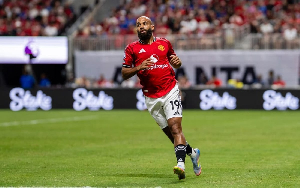The success of Africa’s latest effort at ensuring better continental peacekeeping is dependent on the necessary political will and funding.
Rising from the 23rd Ordinary Session of the Summit of Heads of State and Government of the African Union, AU in Malabo, Equatorial Guinea on June 27, 2014, leaders committed to the creation of a continental force to handle crises.
The African Capacity for Immediate Response to Crises, made up roughly of 5,000 men, has already seen the voluntary commitment of troops by 13 countries. If all goes according to plan, the force will be in place by October 2014 and will eventually evolve into the African Standby Force – a more substantial and permanent body.
Early Peacekeeping Attempts The idea of a pan-African military force goes back a long way. Late Ghanaian leader, Kwame Nkrumah, the father of pan-Africanism, envisaged an African High Command to prevent foreign intervention and help liberation movements wage wars against colonial governments. But the idea never saw the light of day.
The late Libyan leader, Muammar Gaddafi, before his overthrow and killing in 2011, proposed an African Army, offering to equip and house it in purpose-built barracks in his hometown of Sirte. However, his generous offer was rejected by the African Union.
AU Peacekeeping Efforts, Hurdles In place of the African Army, the African Union came up with the African Standby Force, ASF. The idea was that Africa needed to have a military force on standby to intervene before situations spiral out of control like 1994 Rwandan Genocide.
Political Will The take-off of ASF has been postponed several times - in 2008, 2010, 2013, and now to 2015. Observers note that no progress will be achieved until there is political stability in the continent, with Africa ceasing to rely on ad hoc forces. There is fear among some States that the force could be misused to overthrow sitting governments.
Thus, the national interests of African nations have delayed the formation of the African Standby Force. This is clearly exemplified by past disagreements over which country leads the force.
Funding Headache While countries and regions are keen to assume command of ASF operations, they are less enthusiastic about funding them. In some AU operations, countries are happy to commit troops, but expect the AU to provide the rest; including personal body armour! To resolve most of ASF’s problems will require huge political will and much money. As a clue of what lies ahead for the proposed continental force, the Malabo AU summit said funding details will be worked out later.
Logistics, Equipment Past experience in peacekeeping missions on the continent shows that providing the needed logistics and equipment for troops is often a major problem. Cases in point are the recent African intervention in the Mali crisis in 2013 and the deployment of the African Union-led MISCA force in the Central African Republic, CAR last year.
In both instances, some troop-contributing nations had to wait for the availability of transport planes by Western nations before deploying. On the other hand, even where the political will to help out in peacekeeping is there, a good number of African nations do not often have the right equipment for such operations.
Training Perhaps one of the most serious concerns about ensuring proper continental peacekeeping is training. Peacekeeping has since evolved in aspects like rules of engagement and the complexity of emerging armed groups.
Training, combined with technology, is therefore required to successfully keep the peace. In this regard, Western nations like the United States, France and Britain, have been offering peacekeeping, anti-piracy and terrorism training to African troops.
Opinions of Friday, 18 July 2014
Auteur: Cameroon Tribune















